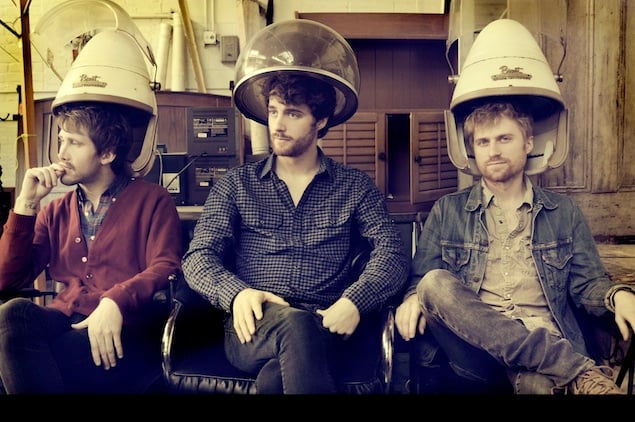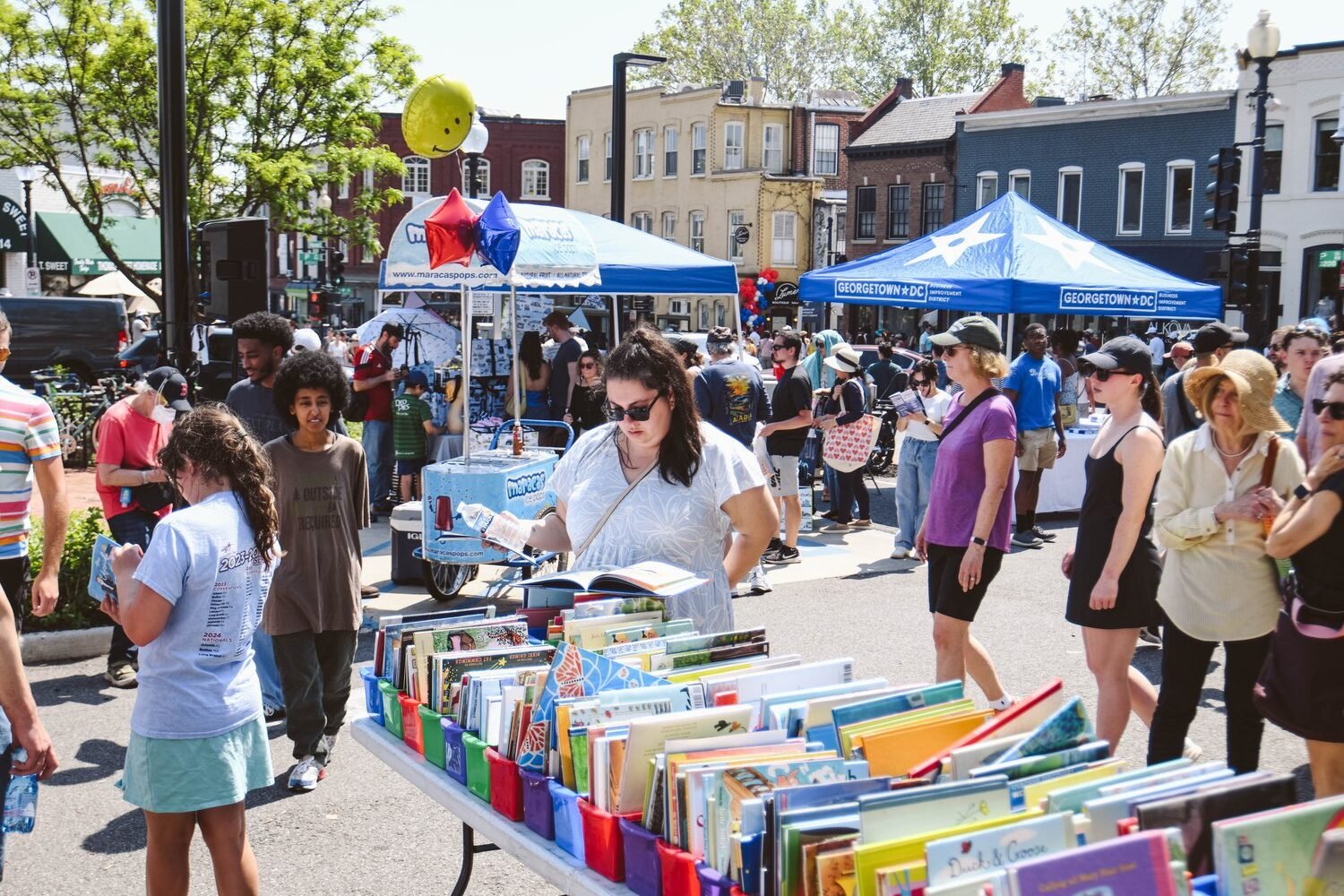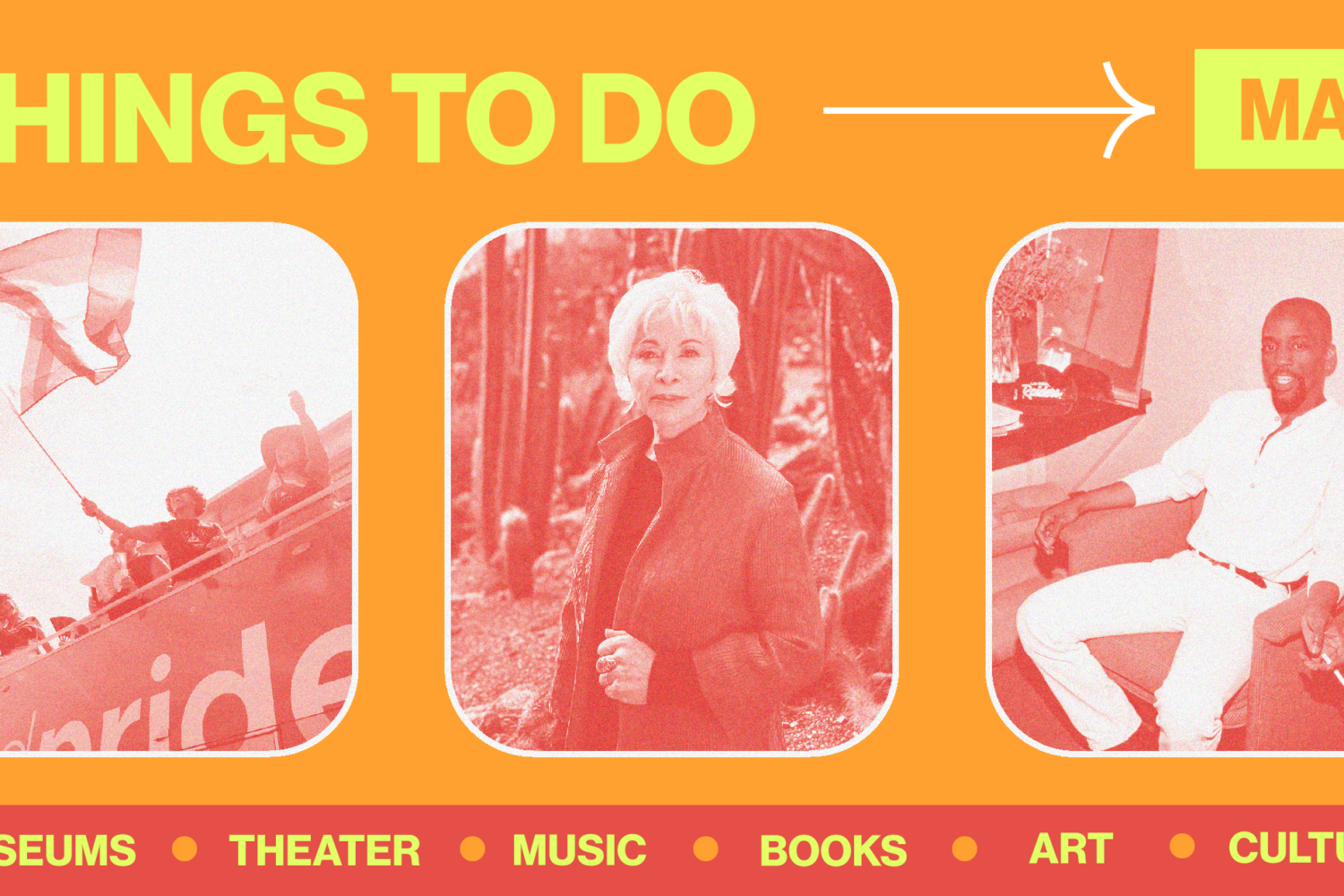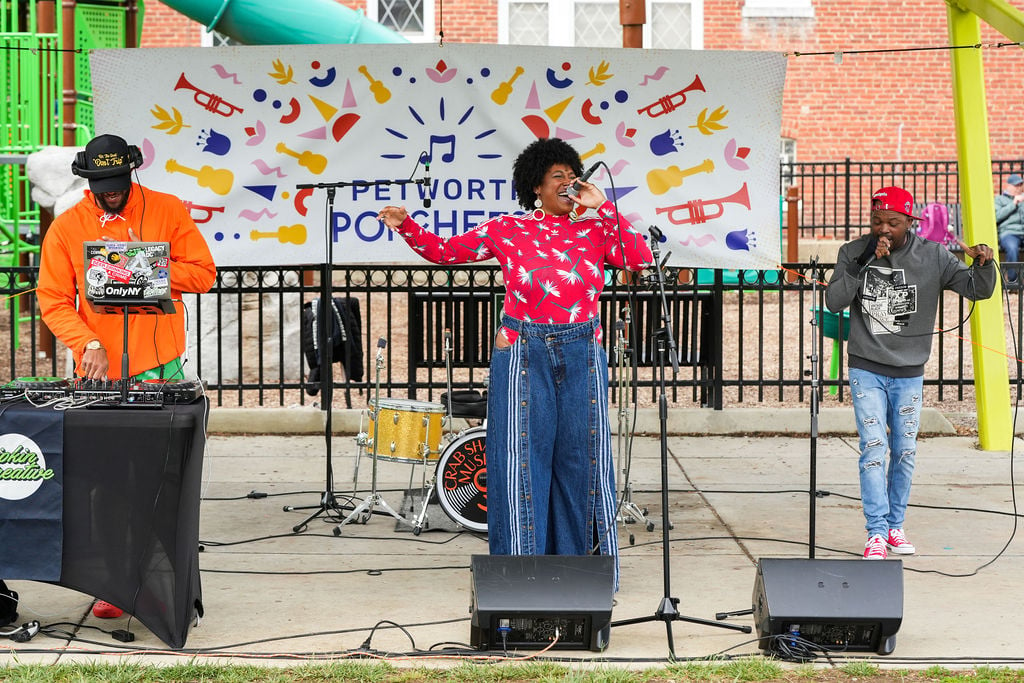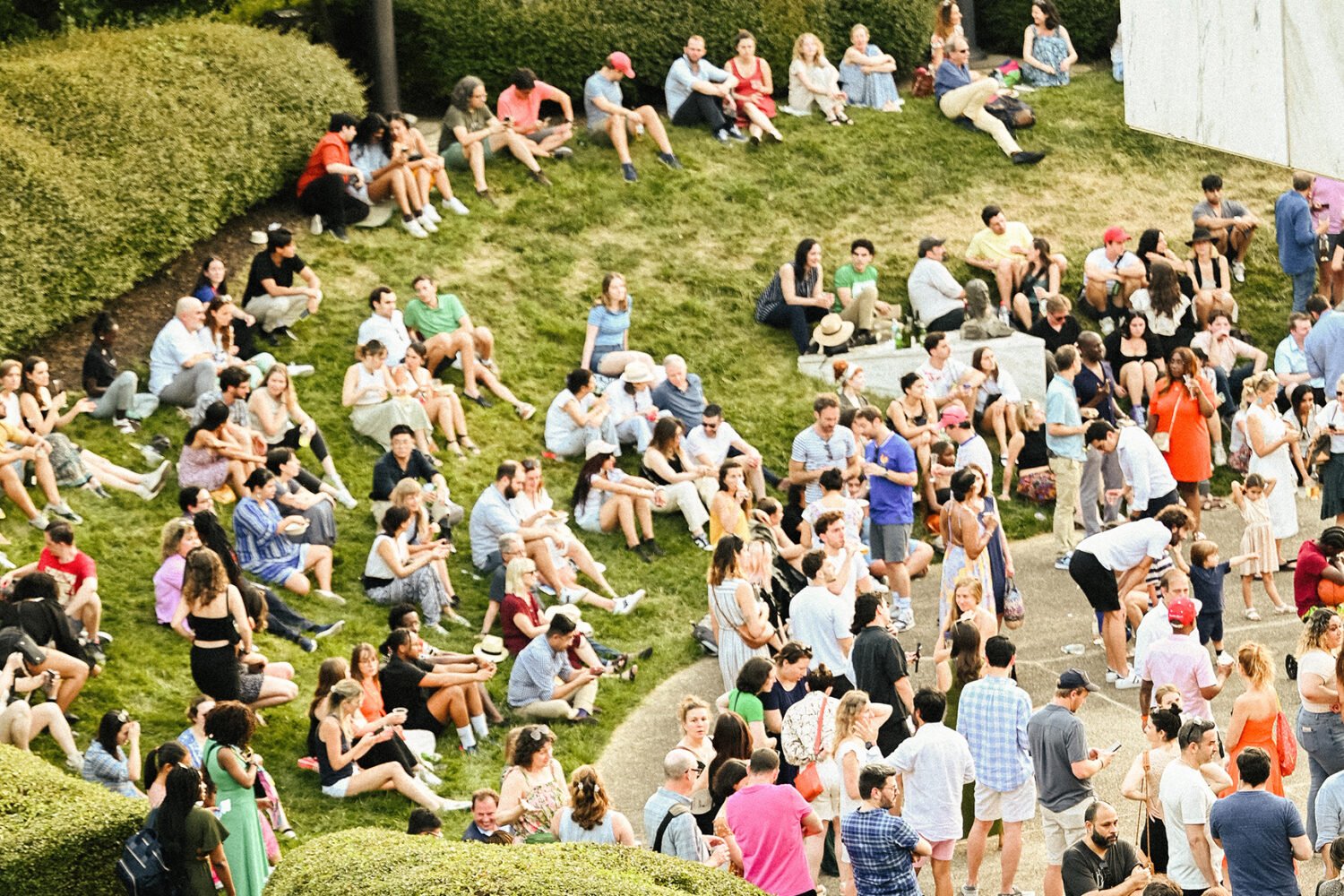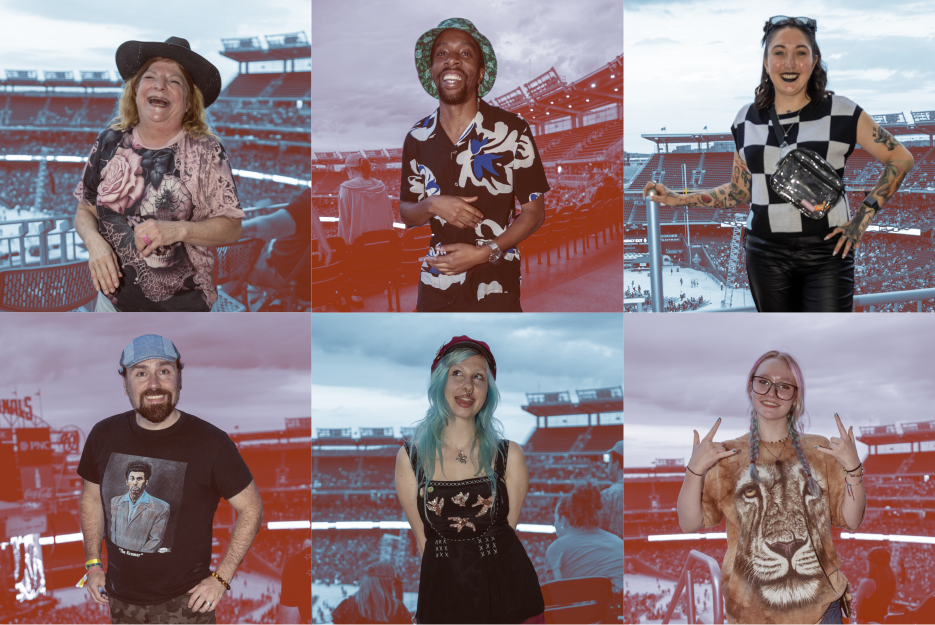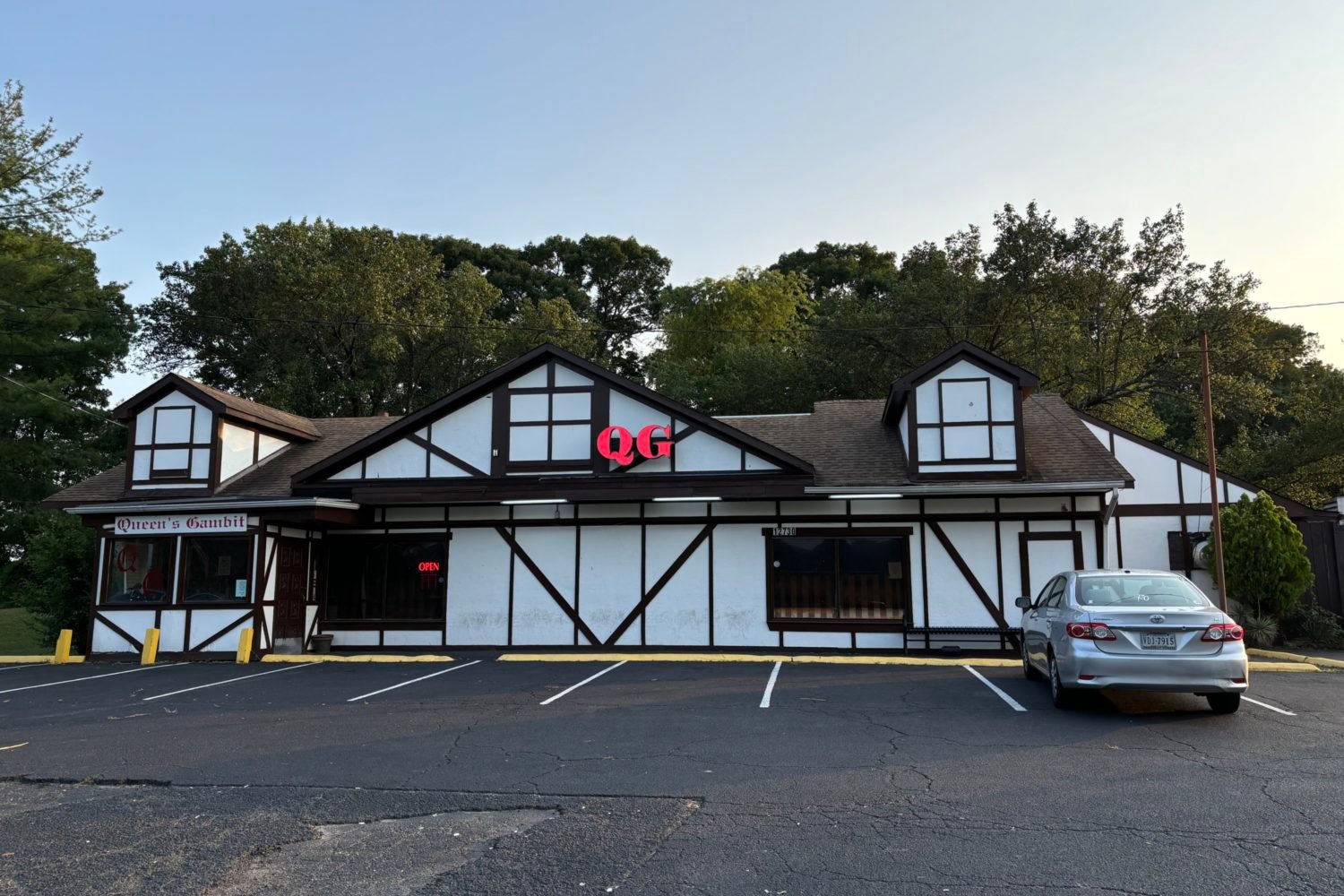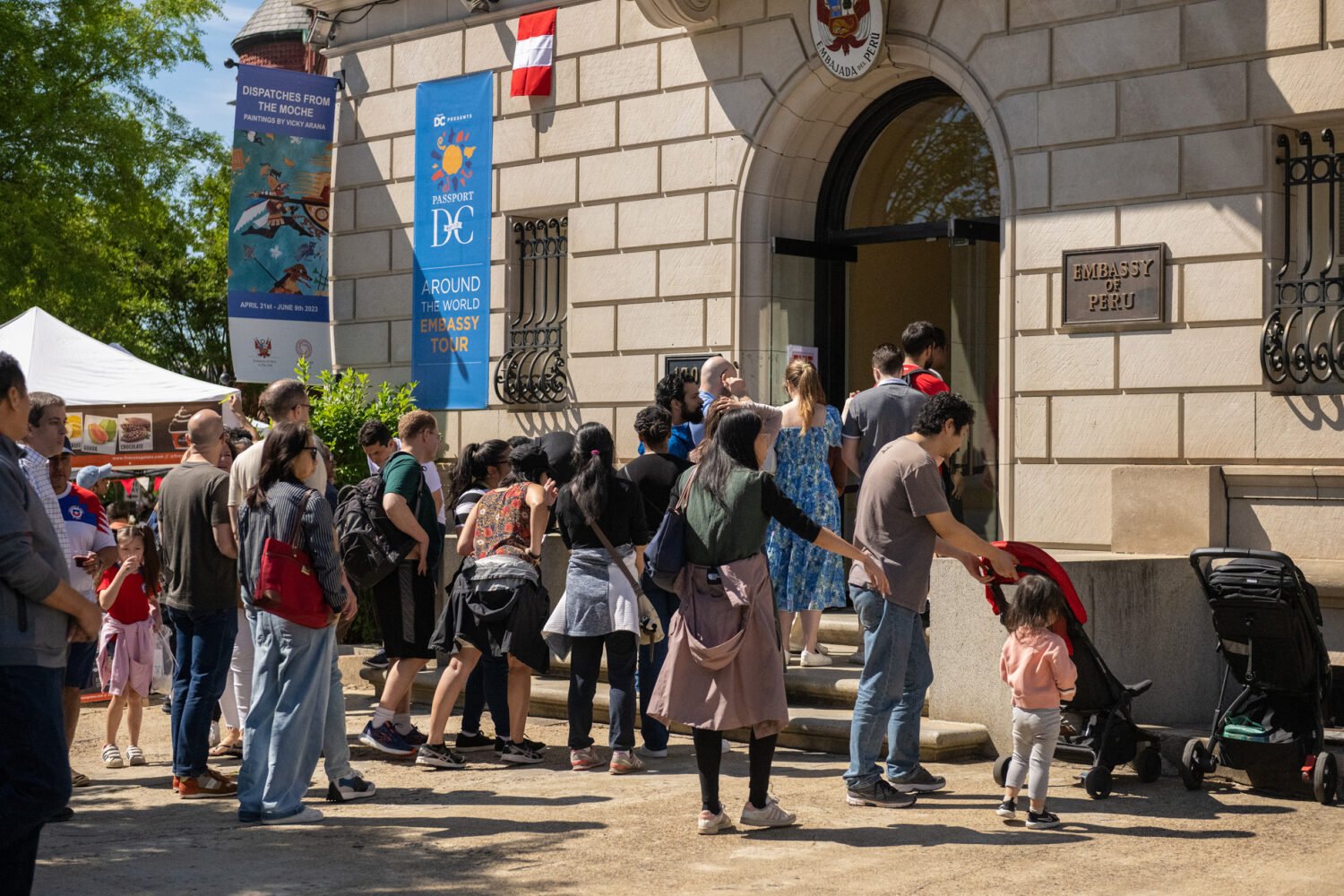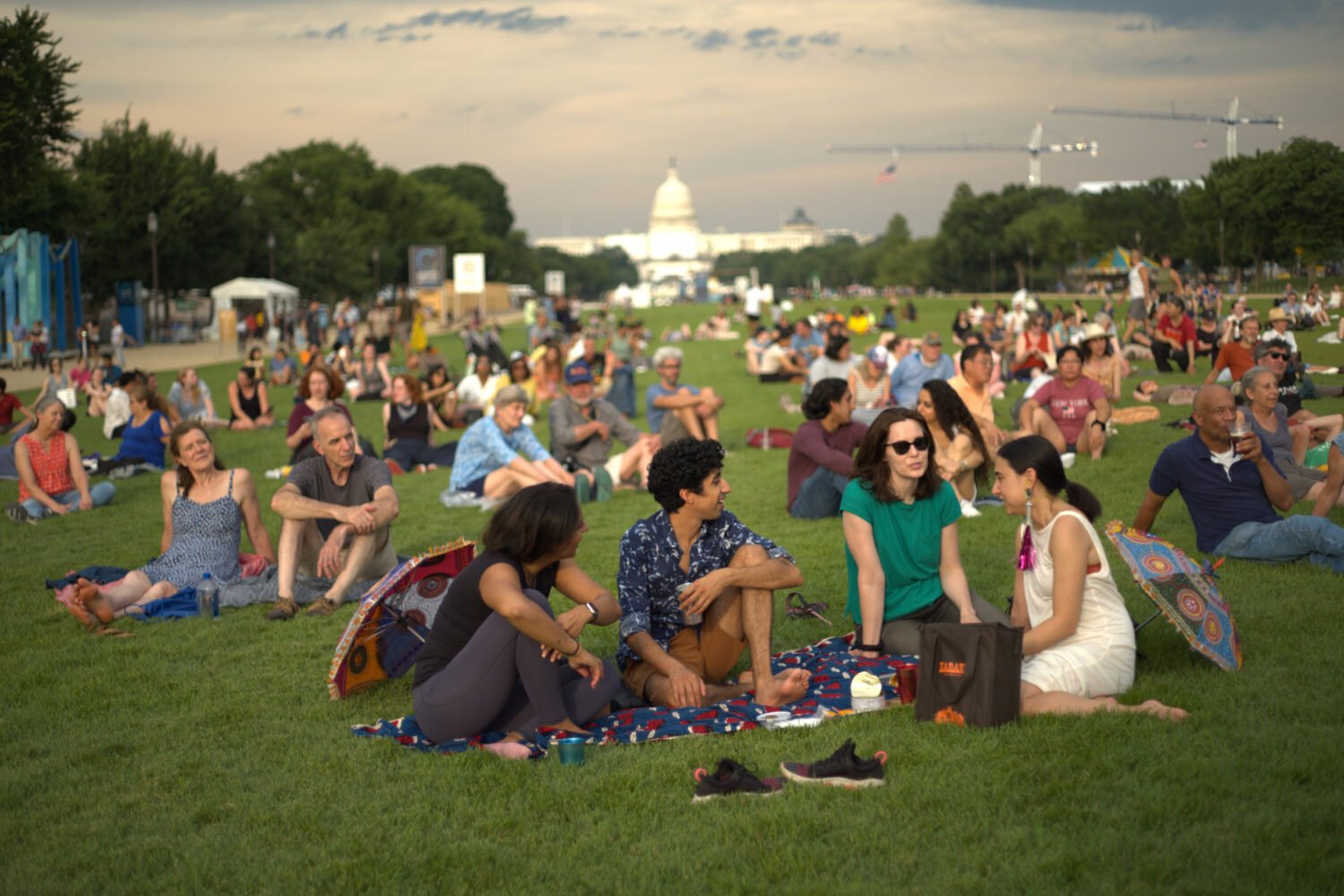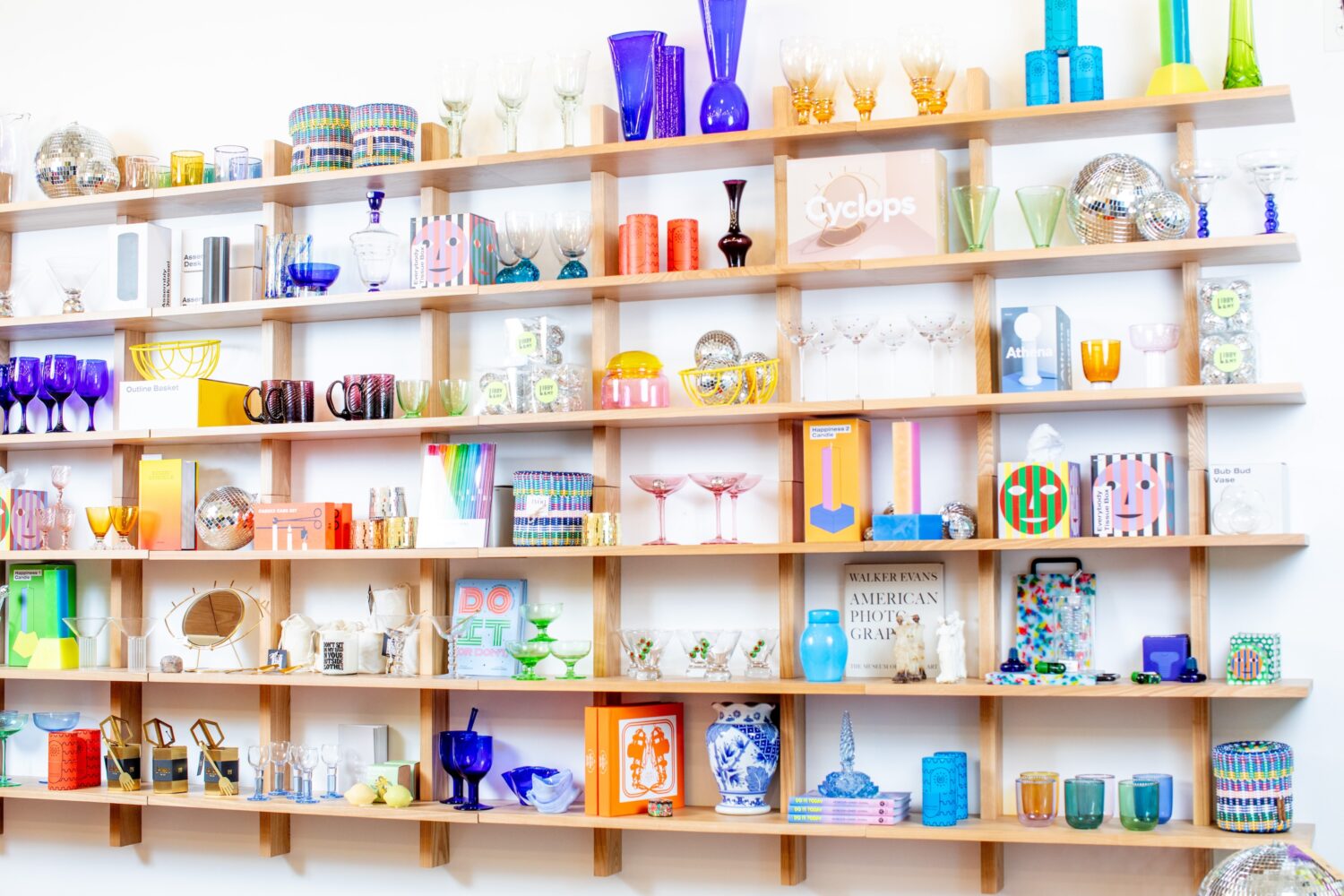Made up of three optimists with a penchant for creating
jaunty, toe-tapping tunes, this DC-born band boasts a lightheartedness
that’s all their own. After meeting at George Washington
University and forming the short-lived Sunday Mail, they poured their
collective quirk and cheerfulness into their efforts as Jukebox
the Ghost (a name taken from merging a Captain Beefheart song
and a Vladimir Nabokov line). Originality with a touch of
whimsy characterizes the upbeat, piano-driven songs that have won
them a fiercely loyal fan base.
The three-piece are now based in Brooklyn, and this Friday marks their homecoming—they’ll be playing their old digs at the
9:30 Club. This time around, they’re touting a third record,
Safe Travels, which showcases a newfound maturation
among the musicians. Crisper, more intimate lyrical content and stripped
down melodies
illustrate how much Jukebox the Ghost have grown since their
scholarly days in the District. We reminisced about the old DC
years with vocalist and pianist
Ben Thornewill, and got details on the band’s recent evolution.
You guys meet all met in DC while you were in college—how did your paths cross?
We all went to GW together. Jesse [Kristin], the
drummer, and I met freshmen year. We lived in the same dorm, that whole
thing.
We met Tommy [Siegel], the guitarist [and vocalist], sophomore
year, and we’ve been playing together ever since. And it worked
out that we got so many of the kinks and so many of our really
rough shows out of the way early, when we were still in college
and could afford to make those mistakes as a band. We really
got our start in DC, and it was the first place in the whole
country that we got the idea that we could push on through and
through.
Did you play a lot of shows while you were here?
Oh, yeah. There was this lounge that would let in
underagers without cards at first. We slowly worked our way up—by the
end
of our senior year, we did our first headline show at the Black
Cat. We pretty much played every available venue that was
there at the time, from DC9 to Velvet Lounge to the Rock &
Roll Hotel to the 9:30 Club.
Were you performing as the Sunday Mail or Jukebox the Ghost?
All of those were as Jukebox the Ghost. When we were
the Sunday Mail, we had trouble getting gigs—we tried to play the Black
Cat, but we were told we were “too college,” which was probably
correct. It’s one of the challenges as a band anywhere. You
gotta find your niche and you gotta keep on working until you
get better and until people take notice, and that’s what we
did.
Afterward, you moved to Philly, then to Brooklyn. Why did you leave DC? Why Philly first?
It was an affordable city. We knew we wanted to be
touring. We knew we wanted to be in a major metropolitan area with a
vibrant,
beautiful community we could grow from. New York was too
expensive, Boston was too cold, and DC was too expensive—plus we’d
been there for four years—and so Philly’s where we landed.
The DC and Philly scenes are much smaller than the current music scene in Brooklyn, where so many young bands move out to
be. What was the experience like for you when you first got there?
You know, I would not want to be a young, young band
starting in Brooklyn—it’s so oversaturated. Being a young band in DC
was wonderful because we got to really know the other bands and
we felt like we were all in it together. Between These United
States and Georgie James and even
Judah Dadone, who plays for the Freelance
Whales—they all got their start in DC, as well—it was a really
close-knit community. With lots
of these bands who got their start in DC, we keep in touch, and
we still see one another and support one another. I think
as a young band in a lot of other cities, it’s hard to get that
support system.
What were some things you missed about DC?
It’s interesting—my DC experience is so wrapped in my
collegiate experience, so there’s almost this innocence I feel about
it. I miss living in a city that’s sort of calm. I missed
walking through the monuments. I loved that vibe—having it be such
a walkable city. It being a smaller music scene and being more
close-knit, I loved that—playing small shows, house shows.
. . . It was a really special time.
So fast-forward several years later to today. You’re
now in New York. You just released your third album, and it represents
a shift in a lot of your lyrical content, which is a little
more mature and personal. Do you feel like the change is drastic?
We’ve grown older as people and gotten more mature as a
band. I think we’re dealing with a lot of the things we dealt with
in the last two records more head-on. It was a big year for all
of us—our grandfathers passed away, Jesse’s father passed
away, there were a couple major break-ups—all these things that
are so fundamentally human and so fundamentally difficult,
and we had to deal with them and look them in the eye. A lot of
that made its way on the record. I think while the record
has the same liveliness and optimism we’ve always had, it’s
treating these subjects directly instead of skirting around them.
In the past we often told stories, third-person stories, about
other characters envisioning these sorts of things happening.
This time around, it’s more personal, and I hope that made the
record a little deeper.
As the content matured, were there any changes in your sound and musicality?
Yeah, the sound on this record is calmer than it has
been in the past. We were ready and willing and decided to take more
risks and put in songs that weren’t always going a mile a
minute and weren’t changing every 15 seconds and could settle into
themselves. I think there was a confidence in this record and
in the songwriting that made us feel we could do that. There
wasn’t the same pressure. Now that the record is out and we’ve
been playing it, it’s been really rewarding—and I think those
who like our music really liked this, as well.
Were there any hesitations about how your fans, who have become used to a certain sound from you guys, would respond to the
changes?
You know, to be honest, I didn’t worry about it. I
feel and felt so much better about this record than either of the other
two records. I’m proud of this in ways I never had been
before—every vocal, every piano line, guitar line was purposeful,
and because of that I felt really confident about it. The tough
part came after finishing the record, for three or four months
after. We were waiting for it to release, and that was painful.
You finish it, you work, and then there’s nothing for three
or four months—you get to uncertainty and worry. Now that it’s
out, I get to see firsthand the reaction of fans and people
who hear it, and I’m confident; I feel great about it.
You talked a bit about how the songs are much more personal. Are there any you feel particularly attached to?
There’s a song on the record called “Adulthood.” I
actually wrote this before any of the major events I talked about
happened.
I was just thinking about this weird English turn of
phrase—that you can survive childhood, you can survive adolescence, but
once you get to adulthood, that’s the end of the line. There’s
no next step, no next phase . . . Once you’re an adult, that’s
it. That really stuck with me. And in that song there’s what I
think became a really foreshadowing line, “In my lungs I still
feel young. But my body won’t play along.” Both my grandfather
and Jesse’s father had lung cancer in the end, and both passed
away from it, and so the song took on all this meaning. It was
actually hard to play for some time—it’s one of those personal,
relatively heavier songs. But at the same time, when you hear
it live, it’s still pretty uplifting.
Do you guys listen to a lot of bands that have the same upbeat quality as you, or are your musical tastes completely different?
Not really. I don’t listen to a lot of music. I get
really overwhelmed quickly; I feel like I can only saturate so much and
it’s useless. It rolls off me. Four or five songs of anything
and I’m pretty done. I certainly don’t spend my day listening
to other bands that sound like Jukebox—sometime I hear them and
it’ll be great, but there’s no formula for what I like to
listen to.
One thing people always seem to appreciate about your music is the optimism. Do you think that’s common in music in general
nowadays?
I think it comes and goes. I like it personally—I
think it’s a nice upswing and a nice trend. I’ve never been one to like
darkness or anger, not that there isn’t a place for it. I think
for us, we’re all genuinely happy and content people, and
that’s reflected in the music that we make.
Staying approachable and relatable also seems like it’s
important to you. Can you talk about some of the ways you reach out
to your fans, like the current “Home Is Where Our Fans Are”
Instagram campaign where fans
can upload photos that remind them of you that make them
happy?
We wanted to create a space for them to connect with
us—we are nothing without our fans, and they are so special in that
they’re
genuine and giving and earnest. I love talking to them, and
they like talking to us. We wanted to do something to build an
online space that felt like a sense of community—somewhere for
them to come to us—so it was like Jukebox the Ghost showed
up in this common space that in theory connected everyone.
Is it ever hard to stay upbeat and perform songs that are cheerier if you’re not necessarily feeling that way at a show?
You know, it sure can be hard and tiresome, but all it
takes is one or two people who are there and smiling and want it—and
then it becomes easy. And when I’m onstage, it’s not about me,
it’s about the people who are there. So if I’m in a crappy
mood, I think, “Deal with it. Suspend it. It’s not about you,
it’s about them.” And by the end of a show, I’m in a much better
mood.
Jukebox the Ghost play the 9:30 Club tonight at 8. Tickets ($15) are available online.

